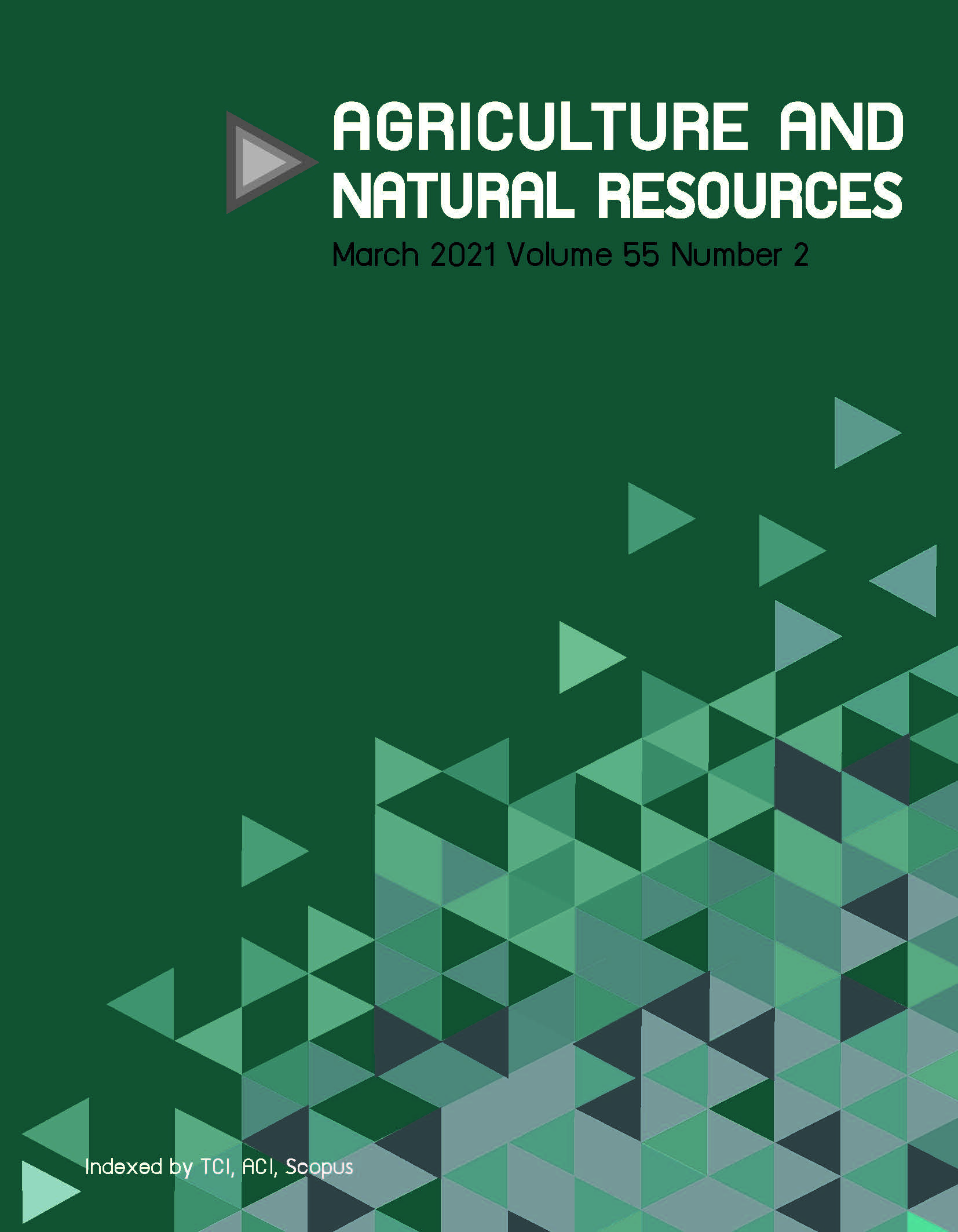Dietary administration of Moringa oleifera extract enhances growth, fatty acid composition, antioxidant activity and resistance of shrimp Litopenaeus vannamei against Photobacterium damselae
Keywords:
Antioxidant activity, Fatty acid composition, Immune response, Litopenaeus vannamei, Moringa oleiferaAbstract
Adverse effects of antibiotics used for disease control in aquaculture have become a global concern. This has enhanced research on using natural products such as herbs as an alternative for disease control in aquatic animals. This study was conducted to evaluate the effect of Moringa oleifera extract (ME) on growth, fatty acid composition, antioxidant activity and resistance of shrimp (Litopenaeus vannamei) after challenge with Photobacterium damselae bacteria. In total, 600 post- larvae shrimps (initial weight: 0.87 ± 0.1 g) were randomly distributed into 12 fiberglass tanks (n = 50 per tank) and divided into four trial groups. The control group (ME0) was fed with an ME-free basal diet. Other groups were fed with the basal diet supplemented with 0.5 g/kg diet (ME0.5), 1.0 g/kg diet (ME1) and 1.5 (ME1.5) g/kg diet. Shrimps were fed at 10% of body weight for 8 wk. The results showed that M. oleifera enhanced shrimp growth (specific growth rate, final weight and weight gain) and DHA compared to the control (ME0), although no significant differences were found for the ME0.5 and ME1 groups. However, both the growth and DHA levels declined in the shrimp fed with ME1.5. The antioxidant activity (SOD, GPx and CAT) and fatty acid composition (PUFA, EPA, DPA, ARA and SFA) of the shrimp fed with ME1 increased while the cumulative mortality of the disease-challenged shrimp significantly (p < 0.05) decreased in the ME1 group compared to the other groups. Overall, M. oleifera extract at 1g/kg diet seemed to be the most appropriate level for increasing growth, fatty acid composition, antioxidant activity and disease resistance of L. vannamei
Downloads
Published
How to Cite
Issue
Section
License

This work is licensed under a Creative Commons Attribution-NonCommercial-NoDerivatives 4.0 International License.
online 2452-316X print 2468-1458/Copyright © 2022. This is an open access article under the CC BY-NC-ND license (http://creativecommons.org/licenses/by-nc-nd/4.0/),
production and hosting by Kasetsart University of Research and Development Institute on behalf of Kasetsart University.







